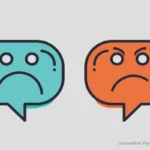
In a society that rewards productivity and affirms that “time is money”, it is not surprising that work has become sacred. As a result, we work a lot, for a long time and often under great stress. That ends up taking its toll on us.
Long, stressful work days leave us exhausted, so it’s sometimes hard to tell if we’re just tired or something else. Is it exhaustion or depression? Psychological research suggests that working too hard, particularly when the job is stressful, can triple the risk of developing work-induced depression.
Depression from working too hard under great pressure
An 11-year study conducted at the University of Michigan collected data from more than 17,000 physicians. These researchers found that working 90 hours or more a week was associated with depressive symptoms. Exactly, working that much increases the risk of depression by three times, compared to people who worked 40 to 45 hours a week.
In addition, a higher percentage of those who worked long hours each day scored high enough to receive a diagnosis of moderate to severe depression, a condition severe enough to require treatment.
These researchers found a “dose response” effect between hours worked and symptoms of depression, with an average increase in symptoms of 1.8 points for those working 40 to 45 hours and up to 5.2 points for those working more than 90 hours.
It’s not the only study that has found a link between overwork and depression. In the United Kingdom, after analyzing more than 23,000 self-employed and employed workers, researchers concluded that working on weekends affects mental health. They also noted that women are particularly vulnerable as the likelihood of developing depressive symptoms increased with excessively long work hours.
Depression from working hard and under pressure is not a phenomenon unique to the West. A 2019 study among the working population of Shanghai also revealed a worrying association between excessive hours worked and the risk of depression, further pointing to a particularly worrying problem: “guolaosi” (death from overwork). In fact, each year some 600,000 people die in China as a result of stress and exhaustion.
The right balance that keeps depression at bay
Today, social norms and economic pressures can push many people to work far beyond their mental health. The desire to make a career quickly or maintain a position in the sector are also incentives that push professionals to work overtime or on weekends.
The problem is that that line blurs very quickly and what starts out as the exception can quickly become the norm, leaving us physically and emotionally exhausted, opening the door to disorders like depression.
A poor work-life balance ends up taking its toll. To avoid this, it is important to ensure that we have enough time to rest and disconnect from work. So our brain can take a vacation and the stress level decreases.
It has also been appreciated that hobbies can help mitigate the adverse effects of long working hours and reduce the risk of depression. They improve our state of mind, help reduce the tension generated by work environments and protect our mental well-being.
Therefore, even if you need to work and accept a job that you don’t like, do not neglect your mental health. Monitor your stress and exhaustion level to recharge your batteries before it’s too late.
Sources:
Fang, Y. et. Al. (2022) Work Hours and Depression in U.S. First-Year Physicians. New England Journal of Medicine; 387(16): 1522.
Weston, G. et. Al. (2019) Long work hours, weekend working and depressive symptoms in men and women: findings from a UK population-based study. J Epidemiol Community Health; ;73(5): 465-474.
Li, Z. et. Al. (2019) Effect of Long Working Hours on Depression and Mental Well-Being among Employees in Shanghai: The Role of Having Leisure Hobbies. Int J Environ Res Public Health; 16(24): 4980.



